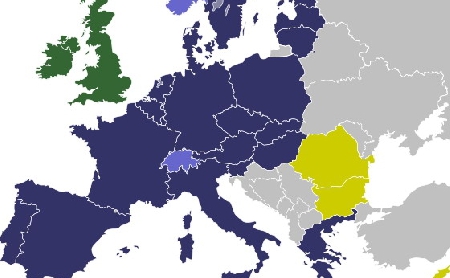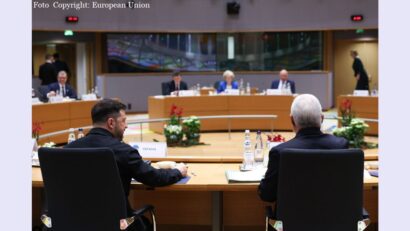Statements concerning Schengen
2024 will be the year of partial accession to Schengen for Romania and Bulgaria

Bogdan Matei, 03.01.2024, 14:00
As long as they are not welcomed into the free-movement Schengen Area, Romanians and Bulgarians will continue to feel like second-class citizens of the European Union – the press and the political class in Bucharest and Sofia have been warning for years. The topic becomes all the more urgent as, this year, in June, the Union will elect a new Parliament, and the frustration caused by this undeserved exclusion feeds the electoral share of Eurosceptic or outright anti-European parties in the two countries.
Members of the EU structures since 2007, Romania and Bulgaria have been kept in the Schengen antechamber for more than a decade, while Croatia, which entered the Union only in 2013, was already co-opted, a year ago, into the free movement area. There, more than 400 million people can travel freely, without internal border controls.
Among the member states of the European Union, only Bulgaria and Romania, as well as the islands of Cyprus and Ireland, are not part of the Schengen Area. It includes, however, four non-EU countries: Switzerland, Liechtenstein, Iceland and Norway. For the admission of new members, the unanimous acceptance of the old ones is needed, and the Netherlands has so far blocked Bulgaria’s candidacy, while Austria stood against Romania’s admission. At the end of last year, the governments in The Hague and Vienna seem to have become more flexible and renounced, though partially, their objections to Romanias and Bulgarias joining Schengen.
The two countries from the south-east of the Union will join the Schengen area in March, but only with the air and maritime borders. Controls will be eliminated only in sea port and airport customs. The Otopeni Henri Coandă airport, the largest in the country, has been prepared for Schengen operation since 2011, itsmanagement told Radio Romania, stressing that two thirds of the passengers fly to and from Schengen countries.
It is a day of great pride for Romanian and Bulgarian citizens, said the president of the European Commission, Ursula von der Leyen, in a message published on the Internet in Romanian and Bulgarian. The European states today support our legitimate right to be members of the Schengen area. Romanians deserve dignity and equal treatment along with all European citizens , stated the Romanian Prime Minister Marcel Ciolacu. The parliamentary opposition, on the other hand, accuses the government of delivering a pseudo-victory to the Romanians in an election year, because they will continue to stand for hours at the border, and the national economy will continue to lose huge amounts, due to many hours wasted by carriers at customs.
In parallel, the Government has promised that the negotiations to lift the restrictions at the land borders as well will continue. But for the moment it is not clear when this step will be taken, given that, as the Radio Romania correspondent in Brussels notes, Austria is still questioning Romanias and Bulgarias ability to manage the migration issue. (MI)






























